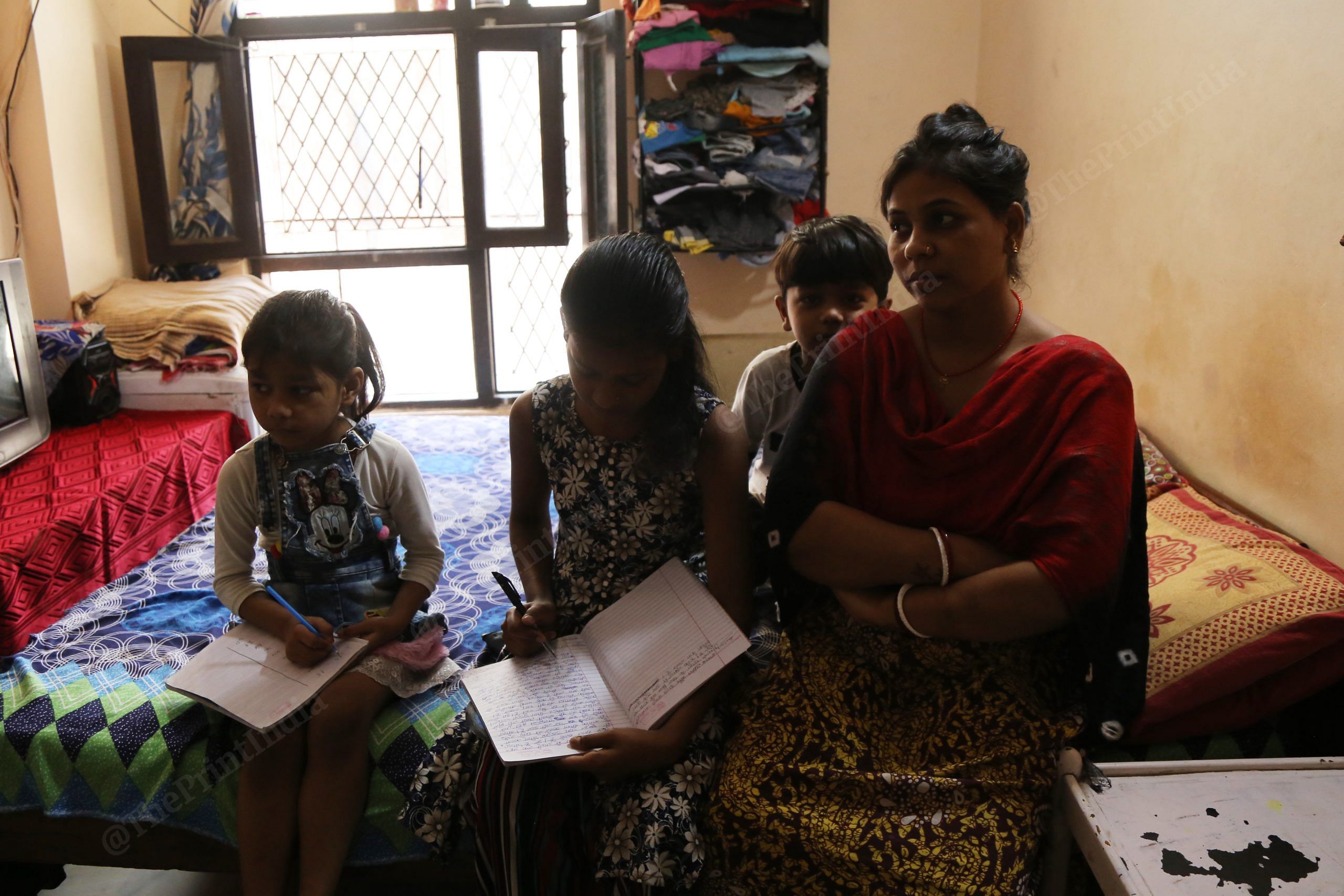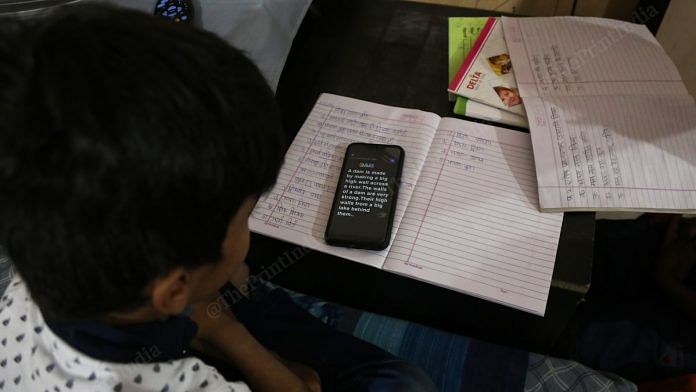New Delhi: When the Narendra Modi government decided to start the new academic session 2020-21 via online mode in the first week of April, many schools across Delhi moved to emerging video calling apps like Zoom, Microsoft Team and Google Meet. But this shift hasn’t come easy for everyone.
As smartphones have become conditional to online classes, students from the economically weaker sections (EWS) of the society who attend government and low-budget private schools in the national capital are struggling to cope with this mode of education.
With parents not conversant in terms like ‘Zoom classes’, video calls are a far cry for most. As a result, their only option is popular messaging service WhatsApp, which allows video calls and voice notes.
Teachers also complain about data-heavy video apps like Zoom or Microsoft Team, saying they can’t use them for lack of resources from schools.
As the lockdown looks set to enter its fourth phase next week and uncertainty persists over when students will be able to go to schools, ThePrint spoke to students and parents from EWS families and teachers about how they are managing the compulsion of online education.
How kids are dealing with WhatsApp
A typical day for students in Delhi starts with their teachers sending them voice notes on WhatsApp about the day’s lessons, followed by either short video clips or pictures of the lesson. As the day progresses, the classes move on through less data consuming voice notes.
Children send voice notes telling the teacher about how much they did or didn’t understand a certain topic, or to inform them that they completed their homework.
“Our teacher sends us voice notes in the morning to tell us what lesson we need to study for the day. She sends some videos to explain it and asks us to read the chapter. We have to then tell her if we understood it, through a small video,” said Shubho Jana, a Class 4 student in Adarsh Public School, a public school in south Delhi.
“Initially when the classes started I had difficulty in studying because I had never studied like this before but now I am used to it. If I don’t understand something, I note it down and ask the teacher separately. I am waiting for tuition classes to start now so that I can clear my doubts,” he added.
In the absence of classroom teaching or direct interaction with teachers, these students are now waiting for either tuition classes or schools to re-open so that they can study properly and clear their doubts.
“I am waiting for my tuition classes to restart so that I can clear my doubts. Taking lessons through WhatsApp is not very helpful. There are many things that I do not understand, especially in Maths,” said Class 8 student Sapna, who attends a government-run Sarvodaya Kanya Vidyalaya.
Also read: How WhatsApp has become the new classroom for school students
How parents are adjusting to online mode, and access
Parents feel this online mode of education is no match to traditional classroom teaching as their children are lagging behind in many subjects. However, they are not complaining yet because it’s either WhatsApp classes or no classes at all.
“When the classes started in April we had trouble trying to figure out ways to complete the lessons. The teacher just send a voice note and some clips and the rest of the lessons had to be done by students on their own,” said Madhumita Jana, mother of Shubho.
“My son is young and he needed help. Most of the time went in helping him with his studies. Now that more than a month has passed, things have settled,” said Madhumita.
To solve the problem of access, the government has been offering educational content for various levels on the Ministry of Human Resources Development-run Swayam Prabha TV Channels — a group of 32 DTH channels that run 24X7 delivering “high-quality” educational programmes.
However, some parents said they have no idea about these channels while others claim they are not helpful.
“I am not aware of any lessons being telecast through TV. My son is only studying through his WhatsApp,” said Madhumita.
Kiran Debi, mother of three children who go to government schools in south Delhi, said, “My daughter has seen TV lessons on some channels but she said that they were not helpful because she could not understand what was being taught.”

What the teachers say
Anjali Singh, a teacher at a private school in south Delhi, said, “We do not have many options apart from sending voice notes and WhatsApp messages to students. Video calls take a lot of internet data and the school does not pay us to do that.”
“As far as doubts are concerned, students can always ask us over a phone call,” she said.
Another school teacher in Ghaziabad said her school doesn’t give clear instructions, or the resources to conduct online classes. “My school doesn’t provide resources to conduct online classes, so WhatsApp is the only option me and other teachers are left with,” said the teacher who didn’t wish to be named.
Also read: Masks, sanitisers, 12 students per room — how CBSE plans board exams postponed due to Covid




I need online class with whatsApp
All line